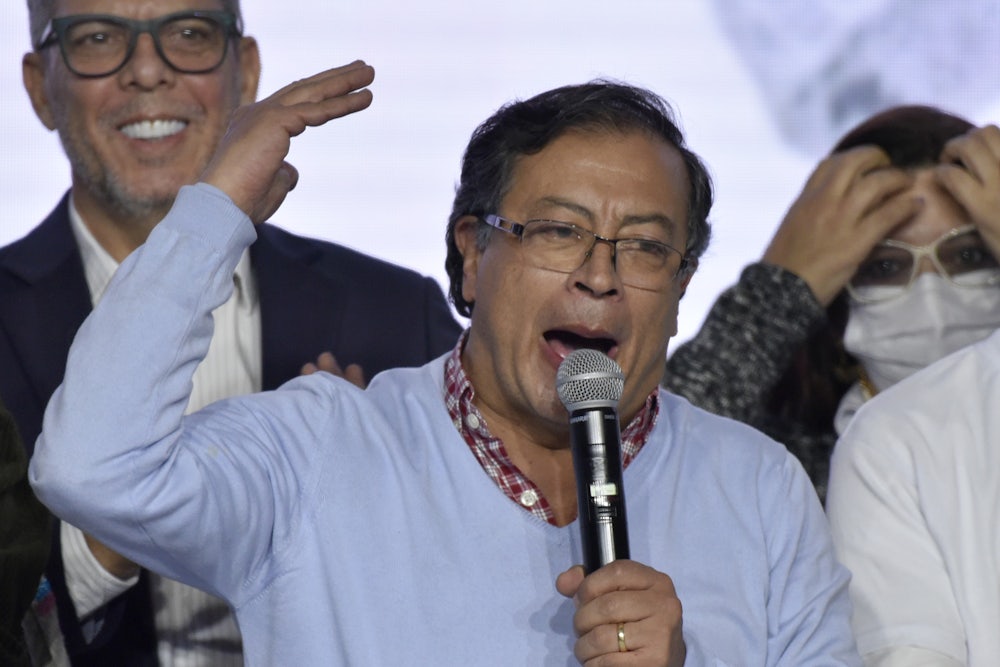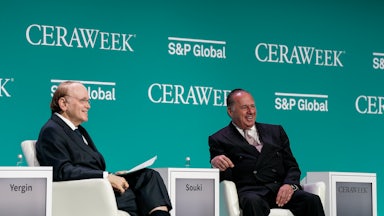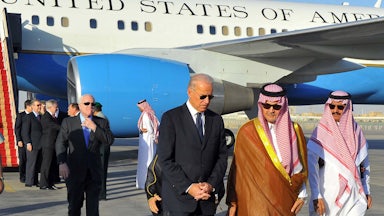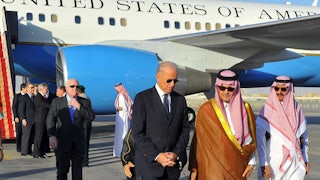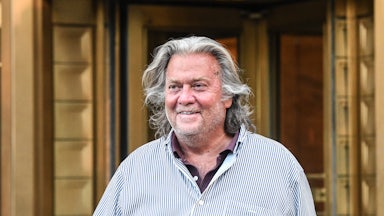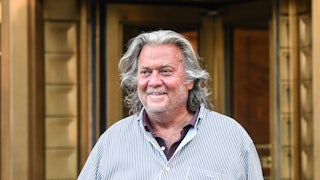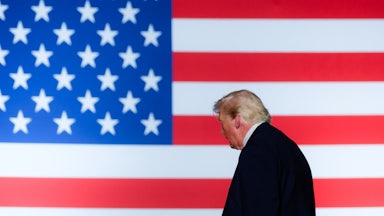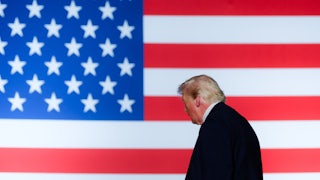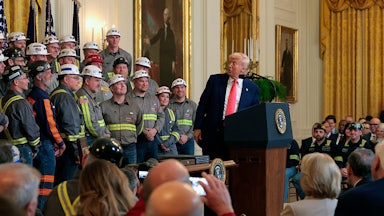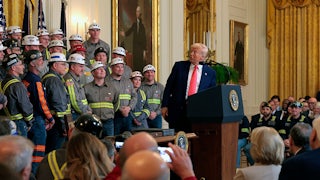This spring, Colombia could elect its first progressive president. In primary elections earlier this month—held for left-wing, centrist, and ruling right blocs—former Bogotá mayor and 2018 presidential candidate Gustavo Petro won an astounding nearly 4.5 million votes to emerge as nominee for the left-wing coalition known as the Historic Pact. Election officials bowed to pressure from the right Monday afternoon and announced they intended to seek a recount, but Petro remains the man to beat when the first round of elections start in May. The country’s right is riled by the very real possibility of losing its long-held grip on power. So are Colombia’s fossil fuel executives. That’s because of what Petro has pledged to do on day one: ban new fossil fuel exploration.
Speaking to oil and gas industry executives in Houston two weeks ago, current Colombian President Iván Duque—limited to one four-year term—spoke obliquely about the choppy waters facing his party and favorite industry back home. “When we’re talking about energy security, we cannot allow those decisions to be captured by populism,” Duque told attendees at CERAWeek, the long-running energy conference held just before the most recent Colombian elections. He added that “the hydrocarbon sector is not the enemy. The enemy are the emissions.” Duque has enthusiastically supported the expansion of Colombia’s fossil fuel sector, and set out to double the country’s oil reserves when he took office. Appropriately, the main English-language news sources covering the race have been in the business press, where politicians and business interests have issued worried missives about Petro’s plans for extraction, taxing the rich, and alleviating the country’s crushing inequality: 42.5 percent of Colombians live below the poverty line, up nearly 7 percent since the start of the pandemic.
Petro isn’t proposing to end extraction immediately. As CENSAT Agua Viva researcher and former Ecopetrol engineer Andrés Gómez O. explained a few months ago on the Colombian news site Las 2 Orillas, existing reserves would continue to be exploited and contracts with refineries would be honored under his plan. (CESNAT Agua Viva is part of Friends of the Earth International, a global network of climate and environmental organizations.) Rather than a sharp break with fossil fuels, Gómez told me over WhatsApp, Petro aims to “build a road that leads Colombia, in a managed and smooth way, away from dependence on fossil fuels on an appropriate timeline: a directive aligned with the manifest urgency of effective climate action that scientists and various environmental organizations are vehemently demanding, and that explores a path away from extractivism which the Latin American left has not dared to travel.” According to the 2021 U.N.-backed Production Gap Report, the world’s governments are on track to produce double the amount of coal, oil, and gas that is consistent with keeping warming below 1.5 degrees Celsius (2.7 degrees Fahrenheit). The International Energy Agency last year found that no investments in new fossil fuel supply projects are compatible with meeting that goal.
Fossil fuels account for more than half of Colombia’s exports—replacing them will not be easy, on any timeline. Petro says he wants to transform the country into a “world power for life,” tripling tourism to the country and supporting manufacturing and small-scale agriculture. As he told the Spanish paper El Pais in a lengthy interview last September, he proposes “to end oil exploration, but not exploitation. The old coffee-growing country has been left behind and sadly we moved into oil and coal. This is unsustainable and will bring about extinction. We need to move away from an extractivist economy and move towards a productive one.”
Petro’s position on climate and extraction has certain strategic benefits in domestic politics. As he looks to solidify the Historic Pact’s parliamentary bloc, emphasizing decarbonization is an easier olive branch to the Green and liberal parties than some of Petro’s other more traditionally left programs, like land reform and a wealth tax. Climate concerns are legible to international audiences, as well as a cudgel against accusations—ever-present from the right—that Petro is plotting to turn Colombia into Venezuela.
The Wall Street Journal, for example, recently ran an op-ed focusing on Petro’s former participation in the April 19 Movement (“M19”)—a rebel group that disarmed in 1991 to participate in drafting the Colombian Constitution and transitioned to ballot box opposition. The FARC (Revolutionary Armed Forces of Colombia) followed suit much later as a result of the 2016 peace accords that ended a half-century of civil war. While prior membership in a rebel group is not uncommon for politicians in countries with recent violent histories—former Brazilian President Dilma Rousseff was a guerrilla in her youth, for example—the Journal op-ed protrayed Petro as a “Chavez admirer” who has sided with “domestic terrorists.”
The reality is much more banal, says Forrest Hylton, a historian at the Universidad Nacional de Colombia-Medellín. “He’s really looking to implement a bit of state-led social democracy,” Hylton told me. “Castro’s Cuba is kind of the gift that keeps giving to the Colombian and Latin American right, and the same is true of Venezuela. They’ll continue to denounce [Petro] as a Communist, but it’s not clear how much more mileage they can get in the twenty-first century.”
While he has explicitly criticized Venezuela’s leadership for years, Petro has spoken favorably about Latin America’s Pink Tide leaders, who helmed a wave of left-wing governments elected as part of the same wave as Hugo Chávez in the 2000s. He’s eagerly sought to associate himself with the newly elected left-wing Chilean President Gabriel Boric, whose inauguration he attended last week, and has praised Bernie Sanders. Petro has outlined a more broadly left-wing, less specifically socialist program, embracing “democratic capitalism” and the full implementation of the 1991 Constitution and 2016 peace accords, which Duque has sought to “modify.” He told El Pais that his programs wouldn’t be “categorized as leftist in Europe. The necessities of Colombian society are not based on building socialism, but on building democracy and peace, period.” His “only criticism” of former Ecuadorean President Rafael Correa, he said in the same interview, was that he “did not make any attempt to move away from an oil and coal-based economy for one based on knowledge. This is what I am proposing to Latin American progressivism.”
Petro, 61, has been a fixture of opposition politics for more than 30 years. He’s been involved in politics ever since the M19 pivoted toward the constitutional process, and is no stranger to challenging the right. He called out right-wing government connections to far-right paramilitaries as a lawmaker, consequently receiving death threats that led him to sleep with an assault rifle by his side. As mayor of the country’s capital, Petro backed several initiatives to broaden transport options and expand public goods, including challenging the Mafia’s control over garbage collection by bringing it under public ownership. In his 2018 presidential run, he collected an unprecedented 42 percent of the vote against Duque, giving him a much bigger platform to criticize that administration. “Even if he were to win, it would be an uphill battle, but I can’t think of anybody better prepared to confront it,” Hylton said. “The conservative currents in Colombian society are never to be underestimated. He’s been around too long to have any illusions about that.”
The defining figure of the Colombian right this century has been Álvaro Uribe, who ruled the country from 2002 and 2010 and continues to loom large. While he’s faced a rash of bribery and witness-tampering charges since leaving office, Uribe serves as head of the ruling Democratic Center Party and hand-picked Duque for his current post. Duque is now under investigation himself for graft. The far-right Democratic Center has been supportive of Trump, and its members over the last few days have shown a willingness to resort to some of Trump’s tactics in dismissing electoral results.
Initial results from the combined presidential primary and legislative elections on March 13 saw a strong showing for Petro but indicated that he’d lack a governing majority in the House and Senate. A subsequent count completed late last week showed that he won by even bigger margins and—critically—that the Historic Pact would be the largest force in the House and Senate. Uribe and the right have been fearmongering about alleged election fraud on social media ever since, potentially testing the waters for a coup. “This result cannot be accepted,” Uribe tweeted on Saturday—referring to alleged fraud. He’s also claimed that Venezuela is to blame. Before polls opened earlier this month, Uribiste Senator María Fernanda Cabal called for election observers with the Progressive International—including former Ecuadorian presidential candidate Andrés Arauz—to be expelled from the country on the grounds that they “came to support the candidates of Marxism and to spread lies about Colombian institutions.” After the votes were counted, Cabal echoed Uribe’s fraud claims: “If we don’t protect our democracy, we will also lose our freedom.” (Duque issued a more softly worded statement calling for a recount.)
After pressure mounted over the weekend, registrar Alexander Vega announced on Monday afternoon that he would formally request a recount from the National Election Council, or CNE. Petro tweeted, “We are facing a real coup promoted by Uribe,” and said he would stay out of any debates “until the transparency of the vote is guaranteed.”
Petro’s success in these elections, recount notwithstanding, follows a series of extended protests in Colombia that have helped fracture the right. Mass student strikes in 2018 bled into a larger mobilization of 1.5 million Colombians in November 2019 against neoliberal fiscal reforms, environmental destruction, and persistent state-sanctioned violence against social movement leaders. A general strike was only halted because of the pandemic. Last spring—amid mounting frustrations over the government’s handling of the pandemic, and worsening inequality—an estimated 10 percent of the population across rural and urban areas participated in an uprising calling on Duque to step down. Feminist movements have been a potent force in Colombian politics, as well, and won a historic victory to decriminalize abortion in February.
“Young people with very little prospects of jobs or higher education were out literally manning barricades and controlling territory all over because the government murdered dozens of people and injured hundreds,” Hylton told me of the protests last spring, which had their epicenter in poor neighborhoods of Cali. “Riot police have been at the center of contention because they don’t allow people to peacefully demonstrate,” a right guaranteed by the country’s constitution. “They’re called in, and peaceful demonstrations ‘turn violent,’ although the violence is almost exclusively one-sided. That became really apparent and deadly in 2021,” he continued. Petro has called for Duque to be tried for crimes against humanity over the killings last spring.
Colombia is the world’s most dangerous country for human rights defenders and environmentalists. Movement groups like the Congreso de los Pueblos liken the intense criminalization of protesters and rampant extrajudicial killings to an “ongoing genocide.” More than 300 former FARC members have been killed since the peace accords were signed in 2016. In all, at least 145 Indigenous Colombian activists, rural organizers, trade unionists, and other leaders were killed last year.
The weapons used in those killings have uncomfortably close ties to the United States. The U.S. has had a major presence in Colombia for decades, and the country is a major recipient of military aid. Duque’s visit to Houston, accordingly, was part of a longer trip in the U.S. that included meeting with President Biden at the White House, where Biden named Colombia as a major “non-NATO” ally and called the country a “linchpin … to the whole hemisphere.” Pitched as a means to prosecute the “war on drugs” and target left-wing guerrillas, Plan Colombia—a $9 billion military aid package launched in 2000—would apply “war on terror” counterinsurgency tactics to the Western hemisphere and specifically to the country’s leftist guerrillas. Critics say the influx of U.S. aid has contributed to massive civilian casualties (“false positives”), widespread displacement, and the systematic killing of social movement leaders, aimed at neutralizing dissent against the neoliberal policies imposed by successive right-wing administrations. While in the U.S., Duque also met with State Department climate envoy John Kerry, who has praised Plan Colombia and even cited it as a potential model for climate action. Plan Colombia, Kerry has argued, “managed to pull Colombia back from being a failed state,” and as such is a model for reducing the effects of climate-intensified migration.
It’s likely that Petro’s vice-presidential candidate will be 40-year-old Afro-Colombian environmental organizer Francia Márquez, a 2018 winner of the prestigious Goldman Environmental Prize who has deep ties to the country’s muscular social movement. Like many activists, she’s escaped a number of near-fatal attacks for her work against illegal mining, including one where two of her bodyguards were killed. After just three months of campaigning, Márquez, a newcomer to electoral politics, mustered an impressive showing in her left-wing primary against Petro earlier this month: She earned 15 percent of the vote. Márquez—the first Afro-Colombian woman ever to run for president in Colombia—has since rejected an invitation to join the ballot of centrist candidate and former Medellín Mayor Sergio Fajardo, who won fewer votes than she did, and affirmed her commitment to the Historic Pact. In selecting her, Petro would be sending a very different signal than neighboring Brazilian presidential candidate Luiz Inácio Lula da Silva. The larger-than-life left-wing former longtime Brazilian president will appear on the ballot with the business-friendly centrist Geraldo Alckmin in his contest against Jair Bolsonaro this October.
While Petro’s chances are strong, his win isn’t a foregone conclusion. Barring any dramatic changes from a potential recount, he’ll face a crowded field in first-round elections in May, with main challengers from the center and right-wing blocs, as well as candidates running outside of them. If he doesn’t win outright, he’ll face a much tougher challenge. And his ability to court the support of Greens and liberals remains an open question. There’s an ugly, if somewhat distant, history of progressive candidates being assassinated, too, including left-wing Bogotá Mayor Jorge Eliécer Gaitán, whose death sparked a 10-year civil war (La Violencia) that left more than 200,000 people dead. Petro has already survived an assassination attempt, in 2018, and travels flanked by armed guards.
